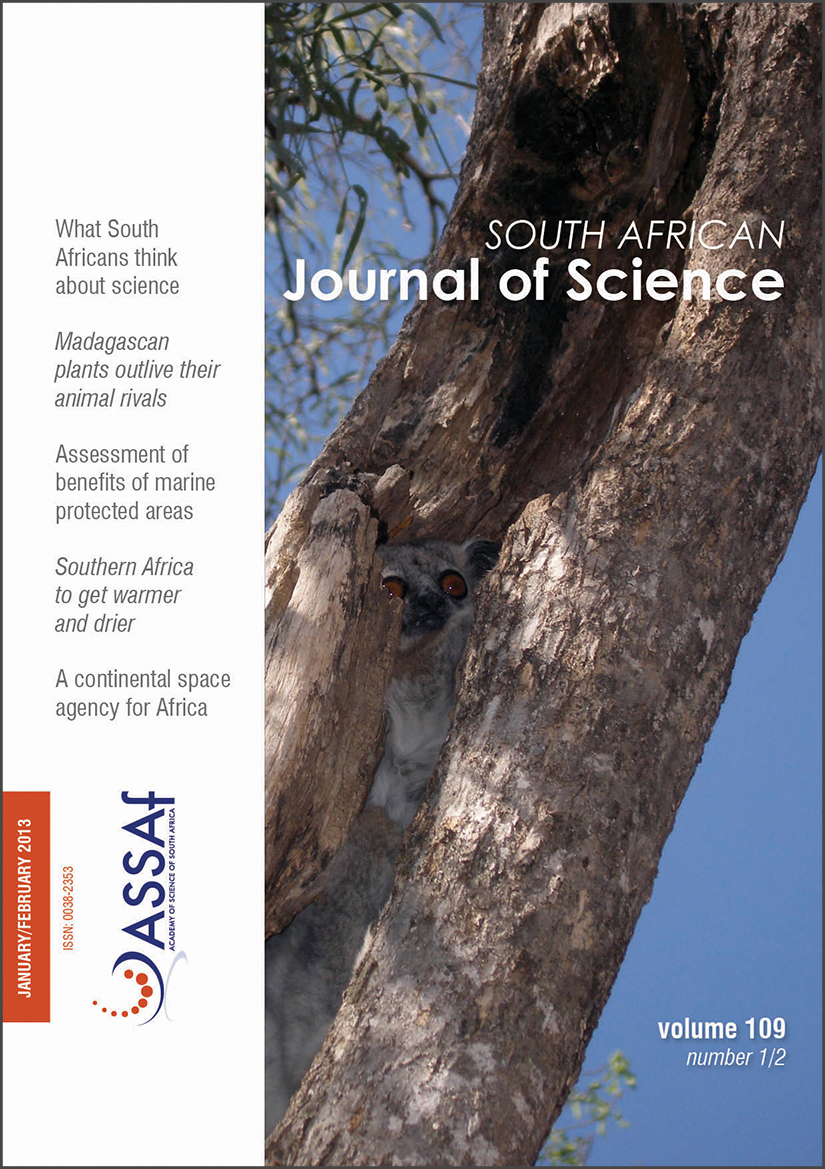Soft-input iterative channel estimation for bit-interleaved turbo-coded MIMO-OFDM systems
DOI:
https://doi.org/10.1590/sajs.2013/772Keywords:
BICM, channel transfer function estimator, channel impulse response estimator, adaptive predictor, fading channelAbstract
Bit-interleaved coded modulation (BICM) is a robust multiplexing technique for achieving multiplexing gain in multiple-input multiple-output (MIMO)-orthogonal frequency division multiplexing (OFDM) systems. However, in order to benefit maximally from the various advantages offered by BICM-based MIMO-OFDM systems, availability of accurate MIMO channel state information (CSI) at the receiver end of the system is essential. Without accurate MIMO CSI, accurate MIMO demapping and coherent detection and decoding of the transmitted message symbols at the system’s receiver would be impossible. In such cases, the multiplexing gain offered by the BICM technique, as well as the higher data rate made possible by the MIMO-OFDM system, is not benefitted from in full. In this paper, we propose a soft input based decision-directed channel estimation scheme for the provision of MIMO CSI for coherent detection of signals in MIMO-OFDM systems. The proposed channel estimator works in iterative mode with a MIMO demapper and a turbo decoder, and is based on the fast data projection method (FDPM) and the variable step size normalised least mean square (VSSNLMS) algorithm. Simulation results of the proposed estimator based on the FDPM and VSSNLMS algorithms indicate better performance in comparison with the same estimator employing minimum mean square error criteria and deflated projection approximation subspace tracking algorithms for both slow- and fast-fading channel scenarios. The proposed estimator would be suitable for use at the receiver end of MIMO-OFDM wireless communication systems operating in either slow- or fast-fading channels.
Published
Issue
Section
License

All articles are published under a Creative Commons Attribution 4.0 International Licence
Copyright is retained by the authors. Readers are welcome to reproduce, share and adapt the content without permission provided the source is attributed.
Disclaimer: The publisher and editors accept no responsibility for statements made by the authors
How to Cite
- Abstract 281
- PDF 316
- EPUB 145
- XML 185












.png)